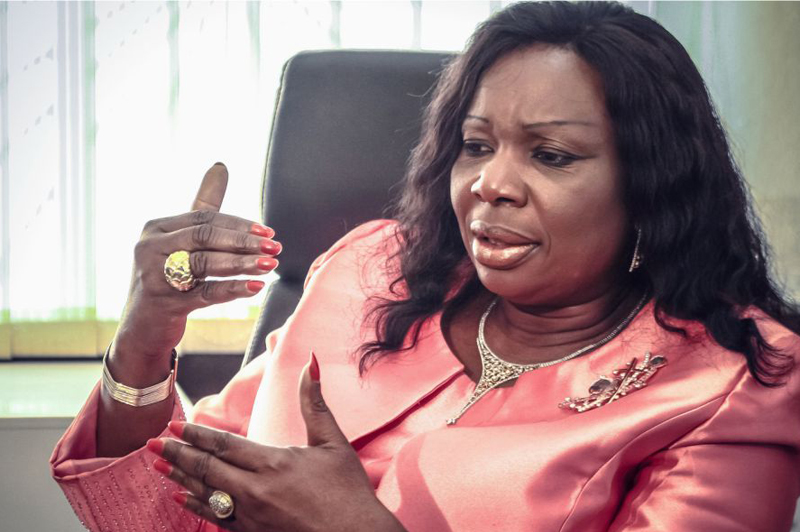The very significant increase in female bosses in many parts of the world has given life to the debate on which of them is preferable to workers: female or male bosses.
During the President Goodluck Jonathan administration, there was a surge in the number of female bosses in sensitive Ministries, Departments and Agencies.
Biggest cabinet positions
In a BBC story, Petroleum Resources Minister Alison-Madueke was reported as saying, “The fact that two of the biggest cabinet positions in Nigeria, petroleum and finance, are held by women, show how far we have come…We are there not because we are women. We are there because of our competence as managers.”
Advertisement
In the same story, Catherine Uju Ifejika (pictured), chairman and chief executive of the Britannia U Group, a group of oil and gas companies joked, “You men, you don’t even know how to boil water or where the children’s school uniforms are.”
“We are able to hold your homes together, and we are beginning to translate that into boardroom jobs, and then owning companies. In six years I have formed seven companies.”
So you don’t say anymore that “the female bosses are coming”. They are here.
Advertisement
In the US, about 4.2 percent of the country’s largest public corporations are now led by women, who also make up 14 percent of top officers in corporate America and 18 percent of board seats.
Interestingly, delivery is not the key issue in this raging debate that started some 20 years ago, but the relationship of female bosses and their staff members – down to the cleaner. Although there cannot be a justifiable generalization, the pedigree and competence of some female bosses cannot be in doubt.
For years, bosses have been known to be men. Even today when you talk about a boss without mentioning names the presumption is that he is a male boss.
Ifejika says 70% of her staff are men, “and they’re not used to having a woman as a chairman or chief executive – a woman, a black woman, a black African woman.”
Advertisement
Research
In the last 20 years or so, researches and books have been looking at the distinct behaviours and skills that women bring to the workplace.
According to Dr Audrey Nelson, from various studies, perceived traits of female managers include “being thoughtful, people focused relationship focused, considerate, quiet, nice, helpful, pleasant, understanding, intuitive, emotional, creative, caring, empathetic, knowledgeable, cheerful, warm, empowering, patient, collaborative, and participative. Female leaders tend to go for a win-win, have a sense of homour, want consensus, and share the power.”
For a female leader’s communication skills, he continues, the studies often include the following: acts spontaneous, asks questions, coaches, teaches, and is assertive. Their voices are soft to midrange in loudness, and they speak with compassion.
Advertisement
The feminine leadership style is interpersonal, nurturing, flexible, and interconnected, meaning that it networks in all directions with others to achieve a company’s goals.
Boss Plus
Advertisement
Sally Helgesen, author of The Female Advantage (1990) and The Web of Inclusion (1995) refers to interconnectedness as a web and contrasts it with a masculine style of hierarchy that focuses only on the vertical ranks in the organization. The web is created in such a way that all employees may contribute and discuss ideas, and it takes advantage of the talents each person brings. Creating and using a web style of management builds on a woman leader’s flexibility and personal interaction skills.
There is one particular quality of female bosses surbordinates delight in. They call it Boss Plus. They say when a woman is the boss, she does the usual job activities just as a competent male boss would do, plus she has a genuine concern for her employees’ well-being inside and outside of work.
Advertisement
Female bosses preferable?
Not quite! Studies and my personal investigation in Nigeria, show that despite the nice qualities above, many workers are more comfortable with the status quo – male bosses.
Advertisement
In the US a recent list of the 50 most likable CEOs from jobs community Glassdoor, culled from employee surveys, includes only two women–Yahoo’s Mayer and Victoria’s Secret’s Sharen Turney–and they are in the bottom half of the list. Also some important female bosses made headline news for wrong reasons. For example, Jill Abramson was fired in May, 2014 as Executive Editor of the New York Times partly over her stormy relationship with her subordinates.
In explaining Abramson’s termination, her boss, New York Times publisher Arthur Sulzberger Jr., explained in a statement that: “During her tenure, I heard repeatedly from her newsroom colleagues, women and men, about a series of issues, including arbitrary decision-making, a failure to consult and bring colleagues with her, inadequate communication and the public mistreatment of colleagues…she had lost the support of her masthead colleagues and could not win it back.”
More generally, a 2011 survey by the American Management Association found that 95 percent of 1,000 working women polled believe they were undermined by another woman at some point in their career.
Also a 2008 University of Toronto study of nearly 1,800 U.S. employees found employees working under a female supervisor reported more distress and symptoms of physical stress than those working under a male supervisor (no percentage cited; just those who worked for women more likely to report stress).
Question. But why do female bosses get the rap?
TO BE CONTINUED…
Add a comment







